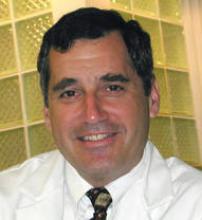The United States "is struggling to figure out how to solve the cost of medical care. In the meantime, my strong conviction is that lupus patients, like any other patient, should have access to the best care available. If that proves to be belimumab, then so be it," Dr. Wofsy said.
A notable feature of the FDA's announcement of belimumab's approval was the agency noting that African American SLE patients and those of African heritage "did not appear to respond to treatment with belimumab" in the two pivotal studies. The FDA noted that the companies developing belimumab agreed to run a new study to specifically address this issue in greater detail.
"The trials done were not powered to address the efficacy of belimumab in African Americans, but the lack of an encouraging signal in this population can only be described as very disappointing, given that this population is disproportionately affected by SLE. The company's apparent commitment to answer this question definitely in a new trial is very important and to their credit," Dr. Wofsy said.
But citing the difficulty of presuming a genetic profile in individual patients who might have a particular racial identity, Dr. Merrill drew a different conclusion. "In my opinion, the data do not support any limitation excluding African Americans" from treatment with belimumab. "Everyone has a different genetic mix. Data that focus on race are very unscientific. I think that all patients deserve a chance to be tried on a treatment that's clearly showed widespread safety, compared with other drugs that are used for standard of care but have lots of side effects."
The labeling issued by the companies that will market belimumab lists a recommended dosage for each belimumab infusion as 10 mg/kg, every 2 weeks for the first three doses followed by new doses every 4 weeks, the dosage that gave the best results in the pivotal trials. But physicians will need to take a flexible attitude on dosage as they start treating patients, Dr. Merrill said. Although she will start some patients on 10 mg/kg, she might start with a lower dosage in patients she is nervous about and then slowly raise the dosage, and, if a patient remains symptomatic but well tolerates 10 mg/kg, she would also consider increasing the dosage higher, she said.
Dr. Merrill said that she has been a consultant to and has received research support from Human Genome Sciences and GlaxoSmithKline, as well as from many other companies. Dr. Wofsy has been a consultant to Bristol Myers Squibb and has received research support from several drug companies.
Dr. Wofsy has consulted for Human Genome Sciences and GlaxoSmithKline, as well as other companies involved in lupus drug development.


